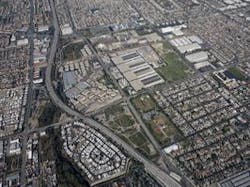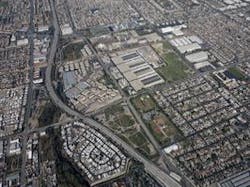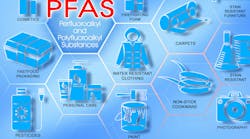LOS ANGELES, JANUARY 10, 2017 -- A new study has confirmed the feasibility of a proposed large-scale project to treat and purify wastewater and distribute it to groundwater basins across the region through a collaboration between the Metropolitan Water District and the Sanitation Districts of Los Angeles County.
The conclusion of the feasibility study paves the way for the next step -- the construction of a demonstration facility, which could begin this summer.
"We are very excited this program is moving closer to reality," Metropolitan General Manager Jeffrey Kightlinger said. "With drought, climate change and environmental restrictions changing the way we manage water, we are committed to developing and investing in new local sources of water to supplement the region's other supplies.
"This program is one part of the region's comprehensive effort to increase water supplies that are drought proof and climate resilient. And it complements the many other solutions we are working on," Kightlinger said.
Through the Regional Recycled Water Program, Metropolitan would take wastewater treated at the Sanitation Districts' Joint Water Pollution Control Plant in Carson -- water that is currently treated and discharged into the ocean -- and purify it using reverse osmosis and other processes. These treatment technologies have been used for decades in California and across the globe and produce high-quality water that meets all state and federal standards.
The purified water would then be stored in four groundwater basins in Los Angeles and Orange counties, allowing for additional natural filtration. Those basins, which serve 7.2 million people, are currently recharged with local rainwater, water imported from the Colorado River and Northern California, and, in some cases, recycled water.
Recharging these basins with recycled water from a project developed by Metropolitan would make imported water available for other uses, including storage for future droughts and emergencies. And it would create greater recharge stability. In recent years, basin levels have reached historic lows due to impacts from the drought, which limited imported supplies available for recharge.
"Southern California's ongoing drought is a reminder that water is too precious to use just once," Kightlinger said. "We've done a great job conserving water—per capita water use in Southern California has declined about 25 percent since 1990—but our population continues to grow and our economy continues to expand. That means we have to continue investing in new ways to use the water we have as efficiently as possible and find multiple ways to diversify our resource portfolio."
The estimated construction cost of the program is $2.7 billion, including building an advanced treatment facility in Carson and laying 60 miles of pipelines to the groundwater basins. Annual operations and maintenance costs are estimated at about $129 million. That means the water produced by the program would cost approximately $1,600 an acre-foot—competitive with other new local supplies.
The program would produce up to 150 million gallons of purified water per day, enough water to serve more than 335,000 homes.
While the feasibility study results are encouraging, additional detailed studies are needed before a final decision is made to move forward with a full-scale program.
Metropolitan is in the process of completing the design of a demonstration facility that will allow the agencies to further test, monitor and optimize the treatment process. The 500,000-gallon-a-day facility would be operated for at least one year.
The full-scale program would then be designed, built and launched over subsequent years.
About the Metropolitan Water District of Southern California
The Metropolitan Water District of Southern California is a state-established cooperative of 26 cities and water agencies serving nearly 19 million people in six counties. The district imports water from the Colorado River and Northern California to supplement local supplies, and helps its members to develop increased water conservation, recycling, storage and other resource-management programs.




